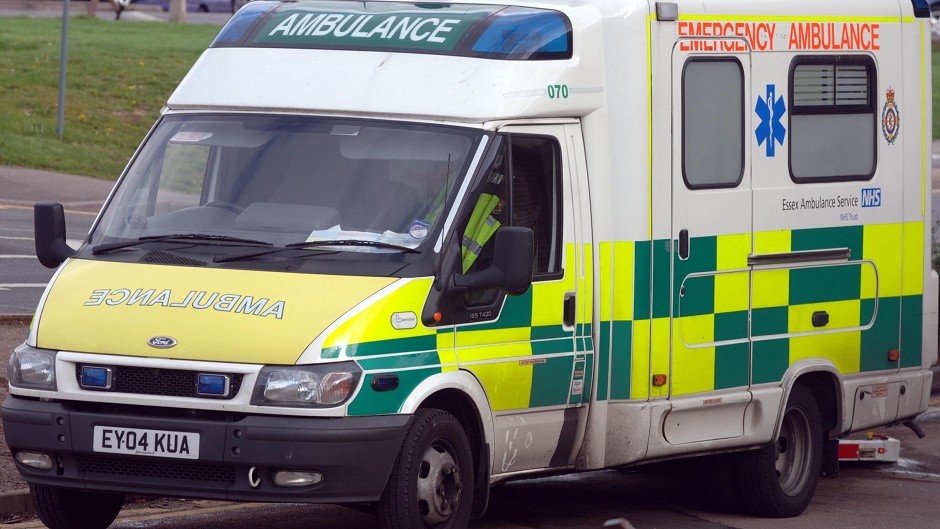Paramedics took longer than 20 minutes to respond to more than 1,000 life-threatening incidents across the north and north-east in the last 12 months.
Shocked politicians and campaigners have called for an urgent inquiry after it emerged the Peterhead and Fraserburgh areas were two of the worst affected places in Scotland.
The Scottish Ambulance Service (SAS) has a target of responding to category A 999 calls within eight minutes.
But crews took more than double that time on 83 mercy missions in the two ports – despite the fact they each have their own ambulance depots.
Dr Jean Turner, of the Scotland Patients Association, said the public would be “shocked” by the figures.
And Mary Melville, vice-chairwoman of Fraserburgh and District Community Safety group, claimed the statistics highlighted that the local ambulance service was “inadequate” and “unsafe”.
The figures for 2013-14 showed that paramedics took more than 20 minutes to respond to 28 calls in Buckie, 10 in Elgin, 14 in Aberdeen, 21 in Inverurie, 13 in Inverness, 27 in Turriff, 31 in Banff, 15 in Banchory, 14 in Stonehaven, 10 in Lossiemouth and six in Keith.
A total of 2,692 calls were responded to in that timescale across Scotland as a whole.
An SAS spokesman said paramedics responded to more than 650,000 incidents last year, of which 142,340 of which were potentially life-threatening.
He said the average response time for such calls was six-and-a-half minutes, despite a 10% increase in demand.
The spokesman said response times could be affected by the weather, traffic, roadworks and demand but insisted staff were “committed to delivering the highest standards of patient care”.
But north-east Liberal Democrat MSP Alison McInnes said the Scottish Government must launch an “urgent investigation” into the delays.
“In more remote parts of the north-east around the Cairngorms, reaching emergency response targets is always likely to be a challenge,” she added.
“But people will have questions over why Aberdeenshire’s two largest towns are amongst the worst performers in Scotland.
“The fact that Peterhead and Fraserburgh are amongst the localities with the highest number of people who had to wait more than double the target response time for emergency medical treatment is a real concern.
“Ministers need to look again at the support they offer our local ambulance teams to help get these response times down.”
Dr Turner, a former independent MSP who trained to be a doctor in Aberdeen, said: “I am extremely disappointed by these figures because we are rich country, not a Third World country.
“Most people expect ambulances will come when you need them if you have had a heart attack, a stroke.
“Twenty minutes will seem to be an eternity if you have had a heart attack, stroke or some other traumatic injury in a car accident.
“I hope an inquiry is carried out into these figures to try and improve them.”
Mrs Melville said a return trip to Aberdeen Royal Infirmary could take more than two hours, leaving other paramedics to handle the remaining calls.
“Fraserburgh does not have an adequate ambulance service and that is what these figures are showing,” she added.
“It is not ideal and we do not consider this to be a safe service so holding an inquiry would be a good idea.”
The SAS spokesman said staff delivered the highest standards of patient care, often in “extremely challenging situations”.
“All 999 responses are monitored by control room staff and if for any reason there is a delay paramedic advisers will review the call and provide additional clinical support to the caller,” he added.
